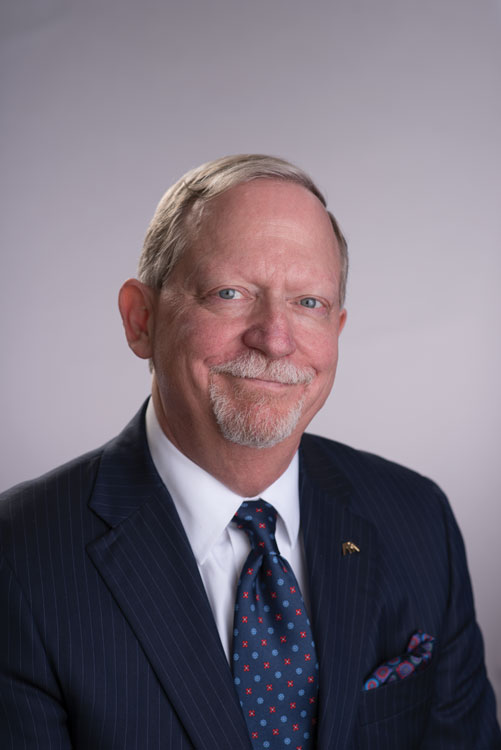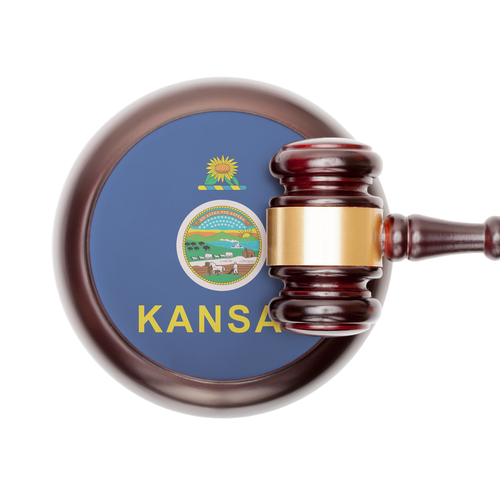Serving the public good: Pro Bono Celebration 2018 highlights disaster resiliency efforts

Photo of Bob Carlson by Tom Salyer photography
Pro bono work, from the shortened version of the Latin phrase pro bono publico—for the public good—is the responsibility that lawyers accept when they enter the profession. As officers of the court sworn to uphold justice, we must ensure that justice is available to all.
Former U.S. Supreme Court Justice Sandra Day O’Connor addressed the importance of pro bono in the legal profession in 1999. “While a business can afford to focus solely on profits, a profession cannot,” she wrote. “It must devote itself first to the community it is responsible to serve. I can imagine no greater duty than fulfilling this obligation. And I can imagine no greater pleasure.”
Oct. 21-27 is the 10th anniversary of the Annual National Celebration of Pro Bono—a nationwide opportunity for lawyers to honor our responsibility to the profession and our communities by volunteering to serve those who cannot afford legal services.
This year’s Pro Bono Celebration will showcase disaster resiliency activities. United States Supreme Court Justice Elena Kagan will serve as honorary chair.
Last year was a record-breaking year for disasters across the United States. Hurricanes Harvey in Houston, Irma in Florida and Maria in Puerto Rico and the Virgin Islands left paths of devastation in their wakes. Wildfires in California and throughout the Western states and flooding in Oklahoma, Missouri and Arkansas, as well as other disasters, have affected millions of Americans. In my home state of Montana, 2017 was considered the state’s worst fire season in more than 100 years, and the flames destroyed homes and damaged farms, equipment and crops.
Nationwide, millions of people saw their homes ruined, their businesses destroyed, their lives uprooted. Requests for federal disaster aid jumped tenfold in 2017 compared to 2016, with 4.7 million people registering with the Federal Emergency Management Agency.
But many people don’t realize that after the hurricanes pass, the floods recede and the fires are extinguished, disaster survivors still struggle with countless problems that involve legal issues. Homeowners try to cope with the documentation demands of FEMA claims and claim appeals. Some landlords seek to force tenants to pay rent for ruined dwellings. Contractors scam desperate owners of damaged dwellings and businesses. Access to health and education benefits can disappear in the chaos of the disaster aftermath. All these situations—and more—require legal assistance so that a disaster survivor can get back on their feet.
And even before a disaster strikes, lawyers can provide important assistance to help people prepare with business-continuity planning, securing title documents and obtaining adequate insurance.
This is where you come in. We are asking lawyers this year to assist with disaster resiliency efforts. Offer pro bono assistance to survivors or evacuees of disasters. Help your community prepare for a disaster. There are so many ways you can help. All kinds of pro bono activities are encouraged.
We are also asking all bar associations, law firms, corporate legal departments, law schools, courts, legal aid and pro bono programs and others to organize programs during the celebration that address the critical value of pro bono to our communities.
If you need help or ideas to plan your National Celebration event, please go to celebrateprobono.org. It has all the resources you need.
And please share your events on Facebook, Twitter and Instagram using the hashtag #celebrateprobono. That way, your events will be posted on the National Celebration website and map, and your valuable contributions will also be recognized in our pro bono honor roll.
“Lawyers have a license to practice law, a monopoly on certain services,” Supreme Court Justice Ruth Bader Ginsburg said in 2014. “But for that privilege and status, lawyers have an obligation to provide legal services to those without the wherewithal to pay, to respond to needs outside themselves, to help repair tears in their communities.”
Together, we can all help repair tears in our communities and make a difference for disaster survivors and all others in need across America.
Follow President Carlson on Twitter @ABAPresident or email [email protected].



